Want to know what books Andrew Chen recommends on their reading list? We've researched interviews, social media posts, podcasts, and articles to build a comprehensive list of Andrew Chen's favorite book recommendations of all time.
1

The bestselling classic on disruptive innovation, renowned author Clayton M. Christensen.
His work is cited by the world’s best-known thought leaders, from Steve Jobs to Malcolm Gladwell. In this classic bestseller—now updated with a fresh new package—innovation expert Clayton Christensen shows how even the most outstanding companies can do everything right—yet still lose market leadership. Read this international bestseller to avoid a similar fate.
Clay Christensen—who authored the award-winning Harvard Business Review article How Will You Measure Your... more The bestselling classic on disruptive innovation, renowned author Clayton M. Christensen.
His work is cited by the world’s best-known thought leaders, from Steve Jobs to Malcolm Gladwell. In this classic bestseller—now updated with a fresh new package—innovation expert Clayton Christensen shows how even the most outstanding companies can do everything right—yet still lose market leadership. Read this international bestseller to avoid a similar fate.
Clay Christensen—who authored the award-winning Harvard Business Review article How Will You Measure Your Life?”—explains why most companies miss out on new waves of innovation. No matter the industry, he says a successful company with established products WILL get pushed aside unless managers know how and when to abandon traditional business practices. Offering both successes and failures from leading companies as a guide, The Innovator’s Dilemma gives you a set of rules for capitalizing on the phenomenon of disruptive innovation.
Sharp, cogent, provocative, and one of the most influential business books of all time—The Innovator’s Dilemma is the book no manager or entrepreneur should be without. Add this newly released edition to your library.
Published by Harvard Business Review Press. less 
Steve JobsIt's important that we make this transformation, because of what Clayton Christensen calls "the innovator's dilemma," where people who invent something are usually the last ones to see past it, and we certainly don't want to be left behind. (Source)

Jeff BezosBrad Stone's new book, The Everything Store, describes how Bezos developed this strategy after reading another book called The Innovator's Dilemma by Harvard professor Clayton Christensen. (Source)

Tim O'ReillyThe Innovator's Dilemma, by Clayton Christensen. An analysis of why great companies fail, because innovation often requires throwing out everything that has made you successful in the past. Disruptive technologies are often born on the fringes, in markets where worse is better. (Source)
2

From the bestselling author of The Black Swan and one of the foremost philosophers of our time, Nassim Nicholas Taleb, a book on how some systems actually benefit from disorder.
In The Black Swan Taleb outlined a problem; in Antifragile he offers a definitive solution: how to gain from disorder and chaos while being protected from fragilities and adverse events. For what he calls the "antifragile" is one step beyond robust, as it benefits from adversity, uncertainty and stressors, just as human bones get stronger when subjected to stress and tension.
Taleb stands... more From the bestselling author of The Black Swan and one of the foremost philosophers of our time, Nassim Nicholas Taleb, a book on how some systems actually benefit from disorder.
In The Black Swan Taleb outlined a problem; in Antifragile he offers a definitive solution: how to gain from disorder and chaos while being protected from fragilities and adverse events. For what he calls the "antifragile" is one step beyond robust, as it benefits from adversity, uncertainty and stressors, just as human bones get stronger when subjected to stress and tension.
Taleb stands uncertainty on its head, making it desirable, and proposing that things be built in an antifragile manner. Extremely ambitious and multidisciplinary, Antifragile provides a blueprint for how to behave-and thrive-in a world we don't understand and which is too uncertain for us to even try to understand. He who is not antifragile will perish. Why is the city state better than the nation state, why is debt bad for you, and why is almost everything modern bound to fail? The book covers innovation, health, biology, medicine, life decisions, politics, foreign policy, urban planning, war, personal finance, and economic systems. Throughout, the voice and recipes of the ancient wisdom from Phoenician, Roman, Greek, and Medieval sources are heard loud and clear. less 
Marvin Liaoeval(ez_write_tag([[250,250],'theceolibrary_com-leader-2','ezslot_7',164,'0','1']));
My list would be (besides the ones I mentioned in answer to the previous question) both business & Fiction/Sci-Fi and ones I personally found helpful to myself. The business books explain just exactly how business, work & investing are in reality & how to think properly & differentiate yourself. On... (Source)

James AltucherYou ask about success. To be successful you have to avoid being “fragile” – the idea that if something hurts you, you let collapse completely. You also have to avoid simply being resilient. Bouncing back is not enough. Antifragile is when something tries to hurt you and you come back stronger. That is real life business. That is real life success. Nassim focuses on the economy. But when I read... (Source)
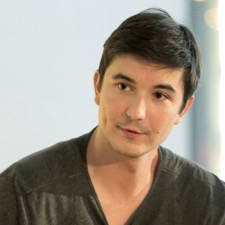
Vlad TenevThe general concept is applicable to many fields beyond biology, for instance finance, economics and monetary policy. (Source)
3

A lot of people talk about how great it is to start a business, but only Ben Horowitz is brutally honest about how hard it is to run one.
In The Hard Thing About Hard Things, Ben Horowitz, cofounder of Andreessen Horowitz and one of Silicon Valley's most respected and experienced entrepreneurs, draws on his own story of founding, running, selling, buying, managing, and investing in technology companies to offer essential advice and practical wisdom for navigating the toughest problems business schools don't cover. His blog has garnered a devoted following of millions of... more A lot of people talk about how great it is to start a business, but only Ben Horowitz is brutally honest about how hard it is to run one.
In The Hard Thing About Hard Things, Ben Horowitz, cofounder of Andreessen Horowitz and one of Silicon Valley's most respected and experienced entrepreneurs, draws on his own story of founding, running, selling, buying, managing, and investing in technology companies to offer essential advice and practical wisdom for navigating the toughest problems business schools don't cover. His blog has garnered a devoted following of millions of readers who have come to rely on him to help them run their businesses. A lifelong rap fan, Horowitz amplifies business lessons with lyrics from his favorite songs and tells it straight about everything from firing friends to poaching competitors, from cultivating and sustaining a CEO mentality to knowing the right time to cash in.
His advice is grounded in anecdotes from his own hard-earned rise—from cofounding the early cloud service provider Loudcloud to building the phenomenally successful Andreessen Horowitz venture capital firm, both with fellow tech superstar Marc Andreessen (inventor of Mosaic, the Internet's first popular Web browser). This is no polished victory lap; he analyzes issues with no easy answers through his trials, including
demoting (or firing) a loyal friend;
whether you should incorporate titles and promotions, and how to handle them;
if it's OK to hire people from your friend's company;
how to manage your own psychology, while the whole company is relying on you;
what to do when smart people are bad employees;
why Andreessen Horowitz prefers founder CEOs, and how to become one;
whether you should sell your company, and how to do it.
Filled with Horowitz's trademark humor and straight talk, and drawing from his personal and often humbling experiences, The Hard Thing About Hard Things is invaluable for veteran entrepreneurs as well as those aspiring to their own new ventures. less 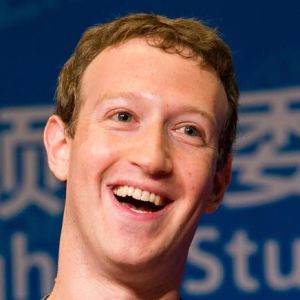
Mark ZuckerbergBen's experience and expertise make him one of the most important leaders not just in Silicon Valley but also in the global knowledge economy. For anyone interested in building, growing or leading a great company, this book is an incredibly valuable resource - and a funny and insightful read. (Source)

Larry PageBen's book is a great read - with uncomfortable truths about entrepreneurship and how to lead to a company. It's also an inspiring story of a business rebirth through sheer willpower. (Source)

Michael Delleval(ez_write_tag([[250,250],'theceolibrary_com-large-mobile-banner-2','ezslot_8',164,'0','1']));
Ben, an influential venture capitalist (of Andreessen Horowitz) and entrepreneur, candidly talks about the very real thrills and perils of starting a business. This book is loaded with great lessons and advice from a successful leader and innovator. (Source)
4

How do successful companies create products people can’t put down?
Why do some products capture widespread attention while others flop? What makes us engage with certain products out of sheer habit? Is there a pattern underlying how technologies hook us?
Nir Eyal answers these questions (and many more) by explaining the Hook Model—a four-step process embedded into the products of many successful companies to subtly encourage customer behavior. Through consecutive “hook cycles,” these products reach their ultimate goal of bringing users back again and again without... more How do successful companies create products people can’t put down?
Why do some products capture widespread attention while others flop? What makes us engage with certain products out of sheer habit? Is there a pattern underlying how technologies hook us?
Nir Eyal answers these questions (and many more) by explaining the Hook Model—a four-step process embedded into the products of many successful companies to subtly encourage customer behavior. Through consecutive “hook cycles,” these products reach their ultimate goal of bringing users back again and again without depending on costly advertising or aggressive messaging.
Hooked is based on Eyal’s years of research, consulting, and practical experience. He wrote the book he wished had been available to him as a start-up founder—not abstract theory, but a how-to guide for building better products. Hooked is written for product managers, designers, marketers, start-up founders, and anyone who seeks to understand how products influence our behavior.
Eyal provides readers with:
• Practical insights to create user habits that stick.
• Actionable steps for building products people love.
• Fascinating examples from the iPhone to Twitter, Pinterest to the Bible App, and many other habit-forming products. less 

 Recommended by Andrew Chen, Nir Eyal, Ken Norton, and 44 others.
Recommended by Andrew Chen, Nir Eyal, Ken Norton, and 44 others. 
Matt MullenwegHooked gives you the blueprint for the next generation of products. Read Hooked or the company that replaces you will. (Source)

Raluca RaduIn terms of business, some of the must-read books I would mention are Hooked by Nir Eyal, Web Analytics: An Hour A Day by Avinash Kaushik, Call To Action and Always Be Testing by Bryan Eisenberg, Epic Content Marketing by Joe Pulizzi, How To Build Websites That Sell by Peep Laja, Content Chemistry by Andy Crestodina. (Source)

Marc GoodmanRecommended by in "Tools of Titans". (Source)
5

The bible for bringing cutting-edge products to larger markets--now revised and updated with new insights into the realities of high-tech marketing
In Crossing the Chasm, Geoffrey A. Moore shows that in the Technology Adoption Life Cycle--which begins with innovators and moves to early adopters, early majority, late majority, and laggards--there is a vast chasm between the early adopters and the early majority. While early adopters are willing to sacrifice for the advantage of being first, the early majority waits until they know that the technology actually offers improvements in... more The bible for bringing cutting-edge products to larger markets--now revised and updated with new insights into the realities of high-tech marketing
In Crossing the Chasm, Geoffrey A. Moore shows that in the Technology Adoption Life Cycle--which begins with innovators and moves to early adopters, early majority, late majority, and laggards--there is a vast chasm between the early adopters and the early majority. While early adopters are willing to sacrifice for the advantage of being first, the early majority waits until they know that the technology actually offers improvements in productivity. The challenge for innovators and marketers is to narrow this chasm and ultimately accelerate adoption across every segment.
This third edition brings Moore's classic work up to date with dozens of new examples of successes and failures, new strategies for marketing in the digital world, and Moore's most current insights and findings. He also includes two new appendices, the first connecting the ideas in Crossing the Chasm to work subsequently published in his Inside the Tornado, and the second presenting his recent groundbreaking work for technology adoption models for high-tech consumer markets. less 

 Recommended by Andrew Chen, Nir Eyal, Guy Kawasaki, and 31 others.
Recommended by Andrew Chen, Nir Eyal, Guy Kawasaki, and 31 others. 
Ron ConwayBestselling guide that created a new game plan for marketing in high-tech industries. (Source)

Drew HoustonIt’s [about] how do technology products make their way from early adopters t the mainstream. (Source)
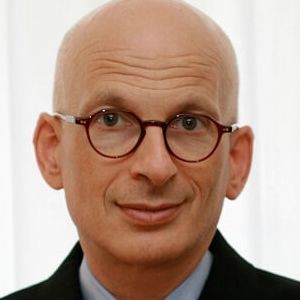
Seth GodinThis is a key component in my Purple Cow thinking, but with a twist. I'm not as worried about the chasm as I am about the desire of marketers to go for the big middle. (Source)
6

The full inside story of the breathtaking rise and shocking collapse of a multibillion-dollar startup, by the prize-winning journalist who first broke the story and pursued it to the end in the face of pressure and threats from the CEO and her lawyers.
In 2014, Theranos founder and CEO Elizabeth Holmes was widely seen as the female Steve Jobs: a brilliant Stanford dropout whose startup "unicorn" promised to revolutionize the medical industry with a machine that would make blood tests significantly faster and easier. Backed by investors such as Larry Ellison and Tim Draper,... more The full inside story of the breathtaking rise and shocking collapse of a multibillion-dollar startup, by the prize-winning journalist who first broke the story and pursued it to the end in the face of pressure and threats from the CEO and her lawyers.
In 2014, Theranos founder and CEO Elizabeth Holmes was widely seen as the female Steve Jobs: a brilliant Stanford dropout whose startup "unicorn" promised to revolutionize the medical industry with a machine that would make blood tests significantly faster and easier. Backed by investors such as Larry Ellison and Tim Draper, Theranos sold shares in a fundraising round that valued the company at $9 billion, putting Holmes's worth at an estimated $4.7 billion. There was just one problem: The technology didn't work.
For years, Holmes had been misleading investors, FDA officials, and her own employees. When Carreyrou, working at The Wall Street Journal, got a tip from a former Theranos employee and started asking questions, both Carreyrou and the Journal were threatened with lawsuits. Undaunted, the newspaper ran the first of dozens of Theranos articles in late 2015. By early 2017, the company's value was zero and Holmes faced potential legal action from the government and her investors. Here is the riveting story of the biggest corporate fraud since Enron, a disturbing cautionary tale set amid the bold promises and gold-rush frenzy of Silicon Valley. less 
Bill GatesA bunch of my friends recommended this one to me. Carreyrou gives you the definitive insider’s look at the rise and fall of Theranos. The story is even crazier than I expected, and I found myself unable to put it down once I started. This book has everything: elaborate scams, corporate intrigue, magazine cover stories, ruined family relationships, and the demise of a company once valued at nearly... (Source)

Brad FeldEvery entrepreneur and VC should read this book. John Carreyrou has done something important here. Maybe this book will finally put a nail in the phrase “fake it till you make it”, but I doubt it. The amount of lying, disingenuousness, blatant and unjustified self-promotion, and downright deceit that exists in entrepreneurship right now is at a local maximum. This always happens when... (Source)

Andrew ChenFinished “bad blood” on the Theranos scandal. Wow. Just wow. It’s a must read for everyone in tech and startups. Just 1-click buy it :) Amazing how far charisma and social proof got them. Here’s the NYT review of the book https://t.co/PyMGxfoG2R (Source)
7

The bestselling classic that launched 10,000 startups and new corporate ventures - The Four Steps to the Epiphany is one of the most influential and practical business books of all time. The Four Steps to the Epiphany launched the Lean Startup approach to new ventures. It was the first book to offer that startups are not smaller versions of large companies and that new ventures are different than existing ones.
Startups search for business models while existing companies execute them. The book offers the practical and proven four-step Customer Development process for search and... more The bestselling classic that launched 10,000 startups and new corporate ventures - The Four Steps to the Epiphany is one of the most influential and practical business books of all time. The Four Steps to the Epiphany launched the Lean Startup approach to new ventures. It was the first book to offer that startups are not smaller versions of large companies and that new ventures are different than existing ones.
Startups search for business models while existing companies execute them. The book offers the practical and proven four-step Customer Development process for search and offers insight into what makes some startups successful and leaves others selling off their furniture.
Rather than blindly execute a plan, The Four Steps helps uncover flaws in product and business plans and correct them before they become costly. Rapid iteration, customer feedback, testing your assumptions are all explained in this book.
Packed with concrete examples of what to do, how to do it and when less 
Ryan HooverToo much (good) info but thankfully there's a summary in the Appendix. (Source)

Matthieu David-ExpertonQuestion: What books would you recommend to young people interested in your career path?
Answer: I would recommend the following ones:
The Hard Thing About Hard Things
Who? How to recruit A players
Les Cles du futur by Jean Staune (in French)
All the books written by Peter Drucker (The Essentials of Drucker)
The 4 steps to the Epiphany by Steve Blank
Freakonomics
The books by Jack Welsh... (Source)

Craig PearceIf you are reading to learn skills that can be implemented in your startup, I’d recommend The Lean Startup: How Today's Entrepreneurs Use Continuous Innovation to Create Radically Successful by Eric Reis and actually avoid its predecessor The Four Steps to the Epiphany: Successful Strategies for Products That Win by Steve Blank until later in your career. (Source)
8

Even the smartest among us can feel inept as we fail to figure out which light switch or oven burner to turn on, or whether to push, pull, or slide a door. The fault, argues this ingenious—even liberating—book, lies not in ourselves, but in product design that ignores the needs of users and the principles of cognitive psychology. The problems range from ambiguous and hidden controls to arbitrary relationships between controls and functions, coupled with a lack of feedback or other assistance and unreasonable demands on memorization. The Design of Everyday Things shows that good, usable... more Even the smartest among us can feel inept as we fail to figure out which light switch or oven burner to turn on, or whether to push, pull, or slide a door. The fault, argues this ingenious—even liberating—book, lies not in ourselves, but in product design that ignores the needs of users and the principles of cognitive psychology. The problems range from ambiguous and hidden controls to arbitrary relationships between controls and functions, coupled with a lack of feedback or other assistance and unreasonable demands on memorization. The Design of Everyday Things shows that good, usable design is possible. The rules are simple: make things visible, exploit natural relationships that couple function and control, and make intelligent use of constraints. The goal: guide the user effortlessly to the right action on the right control at the right time.
In this entertaining and insightful analysis, cognitive scientist Don Norman hails excellence of design as the most important key to regaining the competitive edge in influencing consumer behavior. Now fully expanded and updated, with a new introduction by the author, The Design of Everyday Things is a powerful primer on how—and why—some products satisfy customers while others only frustrate them.
less 

 Recommended by Andrew Chen, Nir Eyal, Vinod Khosla, and 26 others.
Recommended by Andrew Chen, Nir Eyal, Vinod Khosla, and 26 others. 
Trevor SumnerIf you design bad paths for your users no matter how obscure, they will find them. Keep the happy path simple and avoid complexity. This and many other great #design wisdoms in The Design of Everyday Things. Great book from @jnd1er. https://t.co/3CwSDubqFx (Source)

Julia EnthovenFor people interested in designing or building software products: The Design of Everyday Things by Don Norman and The Lean Product Playbook by Dan Olsen. Both books have informed my product sense and helped me make decisions about great UX. (Source)

Kaci LambeThese three books are about how people actually use design in their lives. They helped me understand this very basic idea: There are no dumb users, only bad designers. Take the time to create based on how your design will be interacted with. Test it. Iterate. That's how you become a good designer. (Source)
9

A deluxe hardcover edition of the best-selling science-fiction book of all time—part of Penguin Galaxy, a collectible series of six sci-fi/fantasy classics, featuring a series introduction by Neil Gaiman.
Science fiction’s supreme masterpiece, "Dune" will be forever considered a triumph of the imagination. Set on the desert planet Arrakis, it is the story of the boy Paul Atreides, who will become the mysterious man known as Muad’Dib. Paul’s noble family is named stewards of Arrakis, whose sands are the only source of a powerful drug called “the spice.” After his family is brought... more A deluxe hardcover edition of the best-selling science-fiction book of all time—part of Penguin Galaxy, a collectible series of six sci-fi/fantasy classics, featuring a series introduction by Neil Gaiman.
Science fiction’s supreme masterpiece, "Dune" will be forever considered a triumph of the imagination. Set on the desert planet Arrakis, it is the story of the boy Paul Atreides, who will become the mysterious man known as Muad’Dib. Paul’s noble family is named stewards of Arrakis, whose sands are the only source of a powerful drug called “the spice.” After his family is brought down in a traitorous plot, Paul must go undercover to seek revenge, and to bring to fruition humankind’s most ancient and unattainable dream. A stunning blend of adventure and mysticism, environmentalism and politics, Dune won the first Nebula Award, shared the Hugo Award, and formed the basis of what is undoubtedly the grandest epic in science fiction. less 
Elon MuskBrilliant. [The author] advocates placing limits on machine intelligence. (Source)
10

Despite the world's elation at the Arab Spring, shockingly little has changed politically in the Middle East; even frontliners Egypt and Tunisia continue to suffer repression, fixed elections, and bombings, while Syria descends into civil war. But in the midst of it all, a quieter revolution has begun to emerge, one that might ultimately do more to change the face of the region: entrepreneurship. As a seasoned angel investor in emerging markets, Christopher Schroeder was curious but skeptical about the future of investing in the Arab world. Travelling to Dubai, Cairo, Amman, Beirut,... more Despite the world's elation at the Arab Spring, shockingly little has changed politically in the Middle East; even frontliners Egypt and Tunisia continue to suffer repression, fixed elections, and bombings, while Syria descends into civil war. But in the midst of it all, a quieter revolution has begun to emerge, one that might ultimately do more to change the face of the region: entrepreneurship. As a seasoned angel investor in emerging markets, Christopher Schroeder was curious but skeptical about the future of investing in the Arab world. Travelling to Dubai, Cairo, Amman, Beirut, Istanbul, and even Damascus, he saw thousands of talented, successful, and intrepid entrepreneurs, all willing to face cultural, legal, and societal impediments inherent to their worlds. Equally important, he saw major private equity firms, venture capitalists, and tech companies like Google, Intel, Cisco, Yahoo, and Living Social making significant bets, despite the uncertainty in the region. Here, he marries his own observations with the predictions of these tech giants to offer a surprising and timely look at the second stealth revolution in the Middle East—one that promises to reinvent it as a center of innovation and progress. less Don't have time to read Andrew Chen's favorite books? Read Shortform summaries.
Shortform summaries help you learn 10x faster by:
- Being comprehensive: you learn the most important points in the book
- Cutting out the fluff: you focus your time on what's important to know
- Interactive exercises: apply the book's ideas to your own life with our educators' guidance.
11

A Primer on the Future of PR, Marketing and Advertising
A new generation of megabrands like Facebook, Dropbox, Airbnb, and Twitter haven’t spent a dime on traditional marketing. No press releases, no TV commercials, no billboards. Instead, they rely on a new strategy—growth hacking—to reach many more people despite modest marketing budgets. Growth hackers have thrown out the old playbook and replaced it with tools that are testable, trackable, and scalable. They believe that products and businesses should be modified repeatedly until they’re primed to generate explosive... more A Primer on the Future of PR, Marketing and Advertising
A new generation of megabrands like Facebook, Dropbox, Airbnb, and Twitter haven’t spent a dime on traditional marketing. No press releases, no TV commercials, no billboards. Instead, they rely on a new strategy—growth hacking—to reach many more people despite modest marketing budgets. Growth hackers have thrown out the old playbook and replaced it with tools that are testable, trackable, and scalable. They believe that products and businesses should be modified repeatedly until they’re primed to generate explosive reactions.
Bestselling author Ryan Holiday, the acclaimed marketing guru for American Apparel and many bestselling authors and multiplatinum musicians, explains the new rules and provides valuable examples and case studies for aspiring growth hackers. Whether you work for a tiny start-up or a Fortune 500 giant, if you’re responsible for building awareness and buzz for a product or service, this is your road map. less 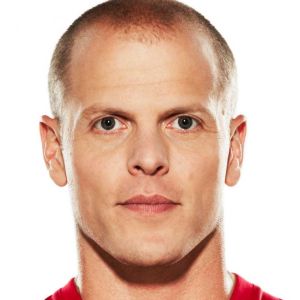
Timothy FerrissHoliday is part Machiavelli, part Ogilvy, and all results... This whiz kid is the secret weapon you've never heard of. (Source)

Andrew ChenGrowth hackers are the new VPs of marketing, and this book tells you how to make the transformation. (Source)

Sean EllisRyan captures the power of the growth hacker mindset and makes it accessible to marketers at companies of all types and sizes. If you don't see a boost in results after reading this book, something is wrong with your product. (Source)
12

Most startups fail. But many of those failures are preventable. The Lean Startup is a new approach being adopted across the globe, changing the way companies are built and new products are launched.
Eric Ries defines a startup as an organization dedicated to creating something new under conditions of extreme uncertainty. This is just as true for one person in a garage or a group of seasoned professionals in a Fortune 500 boardroom. What they have in common is a mission to penetrate that fog of uncertainty to discover a successful path to a sustainable business. more Most startups fail. But many of those failures are preventable. The Lean Startup is a new approach being adopted across the globe, changing the way companies are built and new products are launched.
Eric Ries defines a startup as an organization dedicated to creating something new under conditions of extreme uncertainty. This is just as true for one person in a garage or a group of seasoned professionals in a Fortune 500 boardroom. What they have in common is a mission to penetrate that fog of uncertainty to discover a successful path to a sustainable business.
The Lean Startup approach fosters companies that are both more capital efficient and that leverage human creativity more effectively. Inspired by lessons from lean manufacturing, it relies on "validated learning," rapid scientific experimentation, as well as a number of counter-intuitive practices that shorten product development cycles, measure actual progress without resorting to vanity metrics, and learn what customers really want. It enables a company to shift directions with agility, altering plans inch by inch, minute by minute.
Rather than wasting time creating elaborate business plans, The Lean Startup offers entrepreneurs - in companies of all sizes - a way to test their vision continuously, to adapt and adjust before it's too late. Ries provides a scientific approach to creating and managing successful startups in a age when companies need to innovate more than ever. less 

 Recommended by Sheryl Sandberg, Nir Eyal, Andrew Chen, and 78 others.
Recommended by Sheryl Sandberg, Nir Eyal, Andrew Chen, and 78 others. 
Sheryl SandbergProvides a great inside look at how the tech industry approaches building products and businesses. (Source)

Tim O'ReillyThe Lean Startup isn't just about how to create a more successful entrepreneurial business, it's about what we can learn from those businesses to improve virtually everything we do. I imagine Lean Startup principles applied to government programs, to healthcare, and to solving the world's great problems. It's ultimately an answer to the question 'How can we learn more quickly what works, and... (Source)

Jeffery ImmeltI make all our managers read The Lean Startup. (Source)
13

Book may have numerous typos, missing text, images, or index. Purchasers can download a free scanned copy of the original book (without typos) from the publisher. 1917. Excerpt: ... Chapter Seventeen SCIENTIFIC ADVERTISING THROUGH a book I wrote my name has become connected with "Scientific Advertising." That is, advertising based on fixed principles and done according to fundamental laws. I learned those principles through thirty-six years of traced advertising. Through conducting campaigns on some hundreds of different lines. Through comparing on some lines, by keyed returns, thousands of... more Book may have numerous typos, missing text, images, or index. Purchasers can download a free scanned copy of the original book (without typos) from the publisher. 1917. Excerpt: ... Chapter Seventeen SCIENTIFIC ADVERTISING THROUGH a book I wrote my name has become connected with "Scientific Advertising." That is, advertising based on fixed principles and done according to fundamental laws. I learned those principles through thirty-six years of traced advertising. Through conducting campaigns on some hundreds of different lines. Through comparing on some lines, by keyed returns, thousands of pieces of copy. Always, since I sent out my first thousand letters to the time when $5,000,000 yearly was being spent on my copy, I have had to face records on cost and result. So I have naturally proved out many fundamentals which should always be applied. I have little respect for most theories of advertising, because they have not been proved. They are based on limited experiences, on exceptional conditions. Some lines seem to succeed on methods of advertising which every traced return proves impossible. The reasons for success have little to do with the advertising. The line may have succeeded in spite of the advertising. Many unadvertised lines become highly successful, because of some wanted quality which people soon discover. Or because dealers are in some way induced to feature it. Or because of a name which in itself tells an appealing story. Cream of Wheat is an example. The name alone tells the story. So with Spearmint Gum. All successful gums have succeeded through fortunate names. There is almost no story to tell. There are no great distinctions. The very men who succeeded with one name failed again, and again with others. Any conclusions drawn from such experiences are bound to lead others astray. The cases where they apply are rare. Safe principles are evolved only by those who know with reasonable exactness what the advertising does, and who compare results... less 
Seth GodinVery old, very good. If you're doing any advertising, you have a professional obligation to read this. (Source)

Garrett MoonOgilvy On Advertising by David Ogilvy and My Life In Advertising by Claude Hopkins for old-school marketing smarts. (Source)
14

The #1 bestselling pioneer of "fratire" and a leading evolutionary psychologist team up to create the dating book for guys.
Whether they conducted their research in life or in the lab, experts Tucker Max and Dr. Geoffrey Miller have spent the last 20+ years learning what women really want from their men, why they want it, and how men can deliver those qualities.
The short answer: become the best version of yourself possible, then show it off. It sounds simple, but it's not. If it were, Tinder would just be the stuff you use to start a fire. Becoming your best... more The #1 bestselling pioneer of "fratire" and a leading evolutionary psychologist team up to create the dating book for guys.
Whether they conducted their research in life or in the lab, experts Tucker Max and Dr. Geoffrey Miller have spent the last 20+ years learning what women really want from their men, why they want it, and how men can deliver those qualities.
The short answer: become the best version of yourself possible, then show it off. It sounds simple, but it's not. If it were, Tinder would just be the stuff you use to start a fire. Becoming your best self requires honesty, self-awareness, hard work and a little help.
Through their website and podcasts, Max and Miller have already helped over one million guys take their first steps toward Ms. Right. They have collected all of their findings in Mate, an evidence-driven, seriously funny playbook that will teach you to become a more sexually attractive and romantically successful man, the right way: No "seduction techniques," No moralizing, No bullshit. Just honest, straightforward talk about the most ethical, effective way to pursue the win-win relationships you want with the women who are best for you.
Much of what they've discovered will surprise you, some of it will not, but all of it is important and often misunderstood. So listen up, and stop being stupid! less 15

Few books on software project management have been as influential and timeless as The Mythical Man-Month. With a blend of software engineering facts and thought-provoking opinions, Fred Brooks offers insight for anyone managing complex projects. These essays draw from his experience as project manager for the IBM System/360 computer family and then for OS/360, its massive software system. Now, 20 years after the initial publication of his book, Brooks has revisited his original ideas and added new thoughts and advice, both for readers already familiar with his work and for readers discovering... more Few books on software project management have been as influential and timeless as The Mythical Man-Month. With a blend of software engineering facts and thought-provoking opinions, Fred Brooks offers insight for anyone managing complex projects. These essays draw from his experience as project manager for the IBM System/360 computer family and then for OS/360, its massive software system. Now, 20 years after the initial publication of his book, Brooks has revisited his original ideas and added new thoughts and advice, both for readers already familiar with his work and for readers discovering it for the first time.The added chapters contain (1) a crisp condensation of all the propositions asserted in the original book, including Brooks' central argument in The Mythical Man-Month: that large programming projects suffer management problems different from small ones due to the division of labor; that the conceptual integrity of the product is therefore critical; and that it is difficult but possible to achieve this unity; (2) Brooks' view of these propositions a generation later; (3) a reprint of his classic 1986 paper "No Silver Bullet"; and (4) today's thoughts on the 1986 assertion, "There will be no silver bullet within ten years."
less 
Jeff Bezos[From "The Everything Store", written by Brad Stone] “An influential computer scientist makes the counterintuitive argument that small groups of engineers are more effective than larger ones at handling complex software projects. The book lays out the theory behind Amazon’s two pizza teams,” Stone writes. (Source)

Alan KayAn early look and experience with timeless truths (and gotchas) from systems building with teams (Source)
16

Cixin Liu, Ken Liu | 4.13
The Three-Body Problem is the first chance for English-speaking readers to experience the Hugo Award-winning phenomenon from China's most beloved science fiction author, Liu Cixin.
Set against the backdrop of China's Cultural Revolution, a secret military project sends signals into space to establish contact with aliens. An alien civilization on the brink of destruction captures the signal and plans to invade Earth. Meanwhile, on Earth, different camps start forming, planning to either welcome the superior beings and help them take over a world seen as corrupt, or to fight... more The Three-Body Problem is the first chance for English-speaking readers to experience the Hugo Award-winning phenomenon from China's most beloved science fiction author, Liu Cixin.
Set against the backdrop of China's Cultural Revolution, a secret military project sends signals into space to establish contact with aliens. An alien civilization on the brink of destruction captures the signal and plans to invade Earth. Meanwhile, on Earth, different camps start forming, planning to either welcome the superior beings and help them take over a world seen as corrupt, or to fight against the invasion. The result is a science fiction masterpiece of enormous scope and vision. less 
Barack ObamaAs a devoted reader, the president has been linked to a lengthy list of novels and poetry collections over the years — he admits he enjoys a thriller. (Source)

Mark ZuckerbergIt's a Chinese science fiction book that has gotten so popular there's now a Hollywood movie being made based on it. This will also be a fun break from all the economics and social science books I've read recently. (Source)

Adam SavageI felt like I was getting a Chinese version of Chinese culture. And that frame felt unique. (Source)
17

The Diamond Age: Or, A Young Lady's Illustrated Primer is a postcyberpunk novel by Neal Stephenson. It is to some extent a science fiction coming-of-age story, focused on a young girl named Nell, and set in a future world in which nanotechnology affects all aspects of life. The novel deals with themes of education, social class, ethnicity, and the nature of artificial intelligence. more The Diamond Age: Or, A Young Lady's Illustrated Primer is a postcyberpunk novel by Neal Stephenson. It is to some extent a science fiction coming-of-age story, focused on a young girl named Nell, and set in a future world in which nanotechnology affects all aspects of life. The novel deals with themes of education, social class, ethnicity, and the nature of artificial intelligence. less 
Marvin LiaoMy list would be (besides the ones I mentioned in answer to the previous question) both business & Fiction/Sci-Fi and ones I personally found helpful to myself. The business books explain just exactly how business, work & investing are in reality & how to think properly & differentiate yourself. On the non-business side, a mix of History & classic fiction to understand people, philosophy to make... (Source)
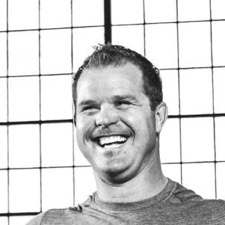
Kelly StarrettKelly is a legitimate fantasy and sci-fi nerd. He knows Dune by Frank Herbert and The Diamond Age by Neal Stephenson inside and out. Kelly has daughters and texted me about the latter book, which follows a young female protagonist: "How do you raise girls that are of the system but crush the system while rebuilding a better one?" (Source)

Hope King@JerryCremin @amazon @JeffBezos It’s the best book (Source)
18

In this age of an open Internet, it is easy to forget that every American information industry, beginning with the telephone, has eventually been taken captive by some ruthless monopoly or cartel. With all our media now traveling a single network, an unprecedented potential is building for centralized control over what Americans see and hear. Could history repeat itself with the next industrial consolidation? Could the Internet—the entire flow of American information—come to be ruled by one corporate leviathan in possession of “the master switch”? That is the big question of Tim Wu’s... more In this age of an open Internet, it is easy to forget that every American information industry, beginning with the telephone, has eventually been taken captive by some ruthless monopoly or cartel. With all our media now traveling a single network, an unprecedented potential is building for centralized control over what Americans see and hear. Could history repeat itself with the next industrial consolidation? Could the Internet—the entire flow of American information—come to be ruled by one corporate leviathan in possession of “the master switch”? That is the big question of Tim Wu’s pathbreaking book.
As Wu’s sweeping history shows, each of the new media of the twentieth century—radio, telephone, television, and film—was born free and open. Each invited unrestricted use and enterprising experiment until some would-be mogul battled his way to total domination. Here are stories of an uncommon will to power, the power over information: Adolph Zukor, who took a technology once used as commonly as YouTube is today and made it the exclusive prerogative of a kingdom called Hollywood . . . NBC’s founder, David Sarnoff, who, to save his broadcast empire from disruptive visionaries, bullied one inventor (of electronic television) into alcoholic despair and another (this one of FM radio, and his boyhood friend) into suicide . . . And foremost, Theodore Vail, founder of the Bell System, the greatest information empire of all time, and a capitalist whose faith in Soviet-style central planning set the course of every information industry thereafter.
Explaining how invention begets industry and industry begets empire—a progress often blessed by government, typically with stifling consequences for free expression and technical innovation alike—Wu identifies a time-honored pattern in the maneuvers of today’s great information powers: Apple, Google, and an eerily resurgent AT&T. A battle royal looms for the Internet’s future, and with almost every aspect of our lives now dependent on that network, this is one war we dare not tune out.
Part industrial exposé, part meditation on what freedom requires in the information age, The Master Switch is a stirring illumination of a drama that has played out over decades in the shadows of our national life and now culminates with terrifying implications for our future. less 
Andrew ChenNow starting the section now these information empires eventually got dismantled, by the internet, cable, and the government antitrust efforts on the 1950s! Awesome book so far (Source)

Seth GodinThis one really stuck with me--a top level analysis of how changes in media change the culture and change the structure of industry. (Source)

Nicholas CarrIf The Information is a sprawling, sweeping story of how information has changed over time, one thing it doesn’t get into is the commercial nature of information as a good that is bought and sold. That’s the story Tim Wu tells in The Master Switch. His basic argument is that whenever a new communication medium arises, a similar pattern occurs. The technology starts off as a hobbyist’s passion,... (Source)
19

Founders at Work: Stories of Startups' Early Days is a collection of interviews with founders of famous technology companies about what happened in the very earliest days. These people are celebrities now. What was it like when they were just a couple friends with an idea? Founders like Steve Wozniak (Apple), Caterina Fake (Flickr), Mitch Kapor (Lotus), Max Levchin (PayPal), and Sabeer Bhatia (Hotmail) tell you in their own words about their surprising and often very funny discoveries as they learned how to build a company.
Where did they get the ideas that made them rich?... more Founders at Work: Stories of Startups' Early Days is a collection of interviews with founders of famous technology companies about what happened in the very earliest days. These people are celebrities now. What was it like when they were just a couple friends with an idea? Founders like Steve Wozniak (Apple), Caterina Fake (Flickr), Mitch Kapor (Lotus), Max Levchin (PayPal), and Sabeer Bhatia (Hotmail) tell you in their own words about their surprising and often very funny discoveries as they learned how to build a company.
Where did they get the ideas that made them rich? How did they convince investors to back them? What went wrong, and how did they recover?
Nearly all technical people have thought of one day starting or working for a startup. For them, this book is the closest you can come to being a fly on the wall at a successful startup, to learn how it's done.
But ultimately these interviews are required reading for anyone who wants to understand business, because startups are business reduced to its essence. The reason their founders become rich is that startups do what businesses do--create value--more intensively than almost any other part of the economy. How? What are the secrets that make successful startups so insanely productive? Read this book, and let the founders themselves tell you. less 

 Recommended by Andrew Chen, Paul Graham, Ron Conway, and 12 others.
Recommended by Andrew Chen, Paul Graham, Ron Conway, and 12 others. 
Paul GrahamProbably the single most valuable book a startup founder could read. (Source)

Ron ConwayCollection of interviews with founders of famous technology companies about what happened in the very earliest days. (Source)
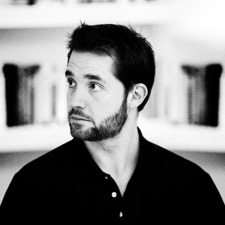
Alexis OhanianA bunch of really great interviews [Jessica] did with a bunch of just OGs of entrepreneurship. (Source)
20

A haunting memoir of teaching English to the sons of North Korea's ruling class during the last six months of Kim Jong-il's reign
Every day, three times a day, the students march in two straight lines, singing praises to Kim Jong-il and North Korea: Without you, there is no motherland. Without you, there is no us. It is a chilling scene, but gradually Suki Kim, too, learns the tune and, without noticing, begins to hum it. It is 2011, and all universities in North Korea have been shut down for an entire year, the students sent to construction fields - except for the 270 students at... more A haunting memoir of teaching English to the sons of North Korea's ruling class during the last six months of Kim Jong-il's reign
Every day, three times a day, the students march in two straight lines, singing praises to Kim Jong-il and North Korea: Without you, there is no motherland. Without you, there is no us. It is a chilling scene, but gradually Suki Kim, too, learns the tune and, without noticing, begins to hum it. It is 2011, and all universities in North Korea have been shut down for an entire year, the students sent to construction fields - except for the 270 students at Pyongyang University of Science and Technology (PUST), a walled compound where portraits of Kim Il-sung and Kim Jong-il look on impassively from the walls of every room, and where Suki has accepted a job teaching English. Over the next six months, she will eat three meals a day with her young charges and struggle to teach them to write, all under the watchful eye of the regime.
Life at PUST is lonely and claustrophobic, especially for Suki, whose letters are read by censors and who must hide her notes and photographs not only from her minders but from her colleagues - evangelical Christian missionaries who don't know or choose to ignore that Suki doesn't share their faith. She is mystified by how easily her students lie, unnerved by their obedience to the regime. To them, everything in North Korea is the best, the tallest, the most delicious, the envy of all nations. Still, she cannot help but love them - their boyish enthusiasm, their eagerness to please, the flashes of curiosity that have not yet been extinguished.
As the weeks pass, she begins to hint at the existence of a world beyond their own - at such exotic activities as surfing the Internet or traveling freely and, more dangerously, at electoral democracy and other ideas forbidden in a country where defectors risk torture and execution. The students in turn offer Suki tantalizing glimpses into their lives, from their thoughts on how to impress girls to their disappointment that soccer games are only televised when the North Korean team wins. Then Kim Jong-il dies, leaving the students devastated, and leading Suki to question whether the gulf between her world and theirs can ever be bridged.
Without You, There Is No Us offers a moving and incalculably rare glimpse of life in the world's most unknowable country, and at the privileged young men she calls "soldiers and slaves." less Don't have time to read Andrew Chen's favorite books? Read Shortform summaries.
Shortform summaries help you learn 10x faster by:
- Being comprehensive: you learn the most important points in the book
- Cutting out the fluff: you focus your time on what's important to know
- Interactive exercises: apply the book's ideas to your own life with our educators' guidance.
21

In his #1 bestselling books The Tipping Point, Blink, and Outliers, Malcolm Gladwell has explored the ways we understand and change our world. Now he looks at the complex and surprising ways the weak can defeat the strong, the small can match up against the giant, and how our goals (often culturally determined) can make a huge difference in our ultimate sense of success. Drawing upon examples from the world of business, sports, culture, cutting-edge psychology, and an array of unforgettable characters around the world, David and Goliath is in many ways the most... more In his #1 bestselling books The Tipping Point, Blink, and Outliers, Malcolm Gladwell has explored the ways we understand and change our world. Now he looks at the complex and surprising ways the weak can defeat the strong, the small can match up against the giant, and how our goals (often culturally determined) can make a huge difference in our ultimate sense of success. Drawing upon examples from the world of business, sports, culture, cutting-edge psychology, and an array of unforgettable characters around the world, David and Goliath is in many ways the most practical and provocative book Malcolm Gladwell has ever written. less 

 Recommended by Andrew Chen, Sean Si, Cat Williams-Treloar, and 6 others.
Recommended by Andrew Chen, Sean Si, Cat Williams-Treloar, and 6 others. 
Cat Williams-TreloarThe books that I've talked the most about with friends and colleagues over the years are the Malcolm Gladwell series of novels. Glorious stories that mix science, behaviours and insight. You can't go wrong with the "The Tipping Point", "Outliers", "Blink" or "David & Goliath". (Source)

Catalina PenciuBusiness-wise, my goal for this year is to improve my collection and my mindset, but my favorite so far has been David and Goliath by Malcolm Gladwell. (Source)

Robert KataiBuy Malcolm Gladwell’s book “David and Goliath” and read the interesting stories about how the Davids of that moments have defeated the Goliaths. (Source)
22

Ben Horowitz, a leading venture capitalist, modern management expert, and New York Times bestselling author, combines lessons both from history and from modern organizational practice with practical and often surprising advice to help executives build cultures that can weather both good and bad times.
Ben Horowitz has long been fascinated by history, and particularly by how people behave differently than you’d expect. The time and circumstances in which they were raised often shapes them—yet a few leaders have managed to shape their times. In What You... more Ben Horowitz, a leading venture capitalist, modern management expert, and New York Times bestselling author, combines lessons both from history and from modern organizational practice with practical and often surprising advice to help executives build cultures that can weather both good and bad times.
Ben Horowitz has long been fascinated by history, and particularly by how people behave differently than you’d expect. The time and circumstances in which they were raised often shapes them—yet a few leaders have managed to shape their times. In What You Do Is Who You Are, he turns his attention to a question crucial to every organization: how do you create and sustain the culture you want?
To Horowitz, culture is how a company makes decisions. It is the set of assumptions employees use to resolve everyday problems: should I stay at the Red Roof Inn, or the Four Seasons? Should we discuss the color of this product for five minutes or thirty hours? If culture is not purposeful, it will be an accident or a mistake.
What You Do Is Who You Are explains how to make your culture purposeful by spotlighting four models of leadership and culture-building—the leader of the only successful slave revolt, Haiti’s Toussaint Louverture; the Samurai, who ruled Japan for seven hundred years and shaped modern Japanese culture; Genghis Khan, who built the world’s largest empire; and Shaka Senghor, a man convicted of murder who ran the most formidable prison gang in the yard and ultimately transformed prison culture.
Horowitz connects these leadership examples to modern case-studies, including how Louverture’s cultural techniques were applied (or should have been) by Reed Hastings at Netflix, Travis Kalanick at Uber, and Hillary Clinton, and how Genghis Khan’s vision of cultural inclusiveness has parallels in the work of Don Thompson, the first African-American CEO of McDonalds, and of Maggie Wilderotter, the CEO who led Frontier Communications. Horowitz then offers guidance to help any company understand its own strategy and build a successful culture.
What You Do Is Who You Are is a journey through culture, from ancient to modern. Along the way, it answers a question fundamental to any organization: who are we? How do people talk about us when we’re not around? How do we treat our customers? Are we there for people in a pinch? Can we be trusted?
Who you are is not the values you list on the wall. It’s not what you say in company-wide meeting. It’s not your marketing campaign. It’s not even what you believe. Who you are is what you do. This book aims to help you do the things you need to become the kind of leader you want to be—and others want to follow. less 
Andrew ChenToday, you can finally read my colleague and mentor @bhorowitz 2nd book, called “What you do is who you are” on creating and sustaining culture.
Great examples from:
- Bushido, Genghis Khan
- the Haitian slave revolt
- Uber and new tech cos
Buy it here: https://t.co/5dTB5AHVKb (Source)

Eric Ries"If you don’t methodically set your culture, then two-thirds of it will end up being accidental and the rest will be a mistake." Love this quote from @bhorowitz and highly recommend his new book that dives into this topic in more detail, coming out 10/29 https://t.co/p8aq4Rk1hq (Source)
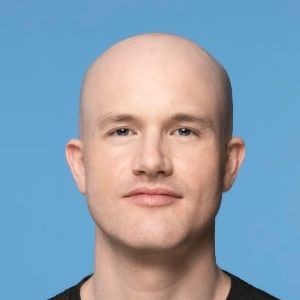
Brian ArmstrongI read an early copy of @bhorowitz's new book about company cultures, and thought it was great! Check it out: https://t.co/9RRcPI2qbs (Source)
24

A behind-the-scenes, revelatory history of McKinsey & Co., America’s most influential and controversial business consulting firm, told by one of the nation’s leading financial journalists.
It ranks among the unquestioned laws of American big business over the last half century: If you want to be taken seriously, you hire McKinsey & Company.
FOUNDED IN 1926, McKINSEY CAN LAY CLAIM to the following partial list of accomplishments: its consultants have ushered in waves of structural, financial, and technological change to the nation’s best... more A behind-the-scenes, revelatory history of McKinsey & Co., America’s most influential and controversial business consulting firm, told by one of the nation’s leading financial journalists.
It ranks among the unquestioned laws of American big business over the last half century: If you want to be taken seriously, you hire McKinsey & Company.
FOUNDED IN 1926, McKINSEY CAN LAY CLAIM to the following partial list of accomplishments: its consultants have ushered in waves of structural, financial, and technological change to the nation’s best organizations; they remapped the power structure within the White House; they even revolutionized business schools. In this book, star financial journalist Duff McDonald shows just how, in becoming an indispensable part of decision making at the highest levels, McKinsey has done nothing less than set the course of American capitalism.
But he also answers the question that’s on the mind of anyone who has ever heard the word McKinsey: Are they worth it? After all, just as McKinsey can be shown to have helped invent most of the tools of modern management, the company was also involved with a number of striking failures. Its consultants were on the scene when General Motors drove itself into the ground, and they were Kmart’s advisers when the retailer tumbled into disarray. They played a critical role in building the bomb known as Enron.
McDonald is one of the few journalists to have not only parsed the record but also penetrated the culture of McKinsey itself—a corporate mandarin elite whose methods have been compared (by others and by themselves) to those of the Jesuits or the U.S. Marines. They feel so strongly about themselves that they have insisted on a proper noun where one need not exist. To an outsider, they are a consulting firm. To themselves, simply, The Firm. This revealing book uncovers the inner workings of what just might be the most influential private organization in America. less 25

The essential skill of creating and maintaining new businesses—the art of the entrepreneur—can be summed up in a single word: managing. In High Output Management, Andrew S. Grove, former chairman and CEO (and employee number three) of Intel, shares his perspective on how to build and run a company. Born of Grove’s experiences at one of America’s leading technology companies, this legendary management book is a Silicon Valley staple, equally appropriate for sales managers, accountants, consultants, and teachers, as well as CEOs and startup founders. Grove covers techniques for creating... more The essential skill of creating and maintaining new businesses—the art of the entrepreneur—can be summed up in a single word: managing. In High Output Management, Andrew S. Grove, former chairman and CEO (and employee number three) of Intel, shares his perspective on how to build and run a company. Born of Grove’s experiences at one of America’s leading technology companies, this legendary management book is a Silicon Valley staple, equally appropriate for sales managers, accountants, consultants, and teachers, as well as CEOs and startup founders. Grove covers techniques for creating highly productive teams, demonstrating methods of motivation that lead to peak performance—throughout, High Output Management is a practical handbook for navigating real-life business scenarios and a powerful management manifesto with the ability to revolutionize the way we work. less 
Brian CheskyFor Chesky, a source may come in the form of a biography of a business hero such as Steve Jobs or Walt Disney. His primary book source on management technique is Andy Grove’s High Output Management. (Source)
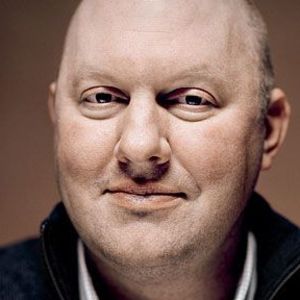
Marc AndreessenIf you pick one person who built Silicon Valley, it was Andy. Andy exemplifies the best of Silicon Valley. (Source)
Don't have time to read Andrew Chen's favorite books? Read Shortform summaries.
Shortform summaries help you learn 10x faster by:
- Being comprehensive: you learn the most important points in the book
- Cutting out the fluff: you focus your time on what's important to know
- Interactive exercises: apply the book's ideas to your own life with our educators' guidance.
























